New UMMC research building to promote 'discovery to recovery'
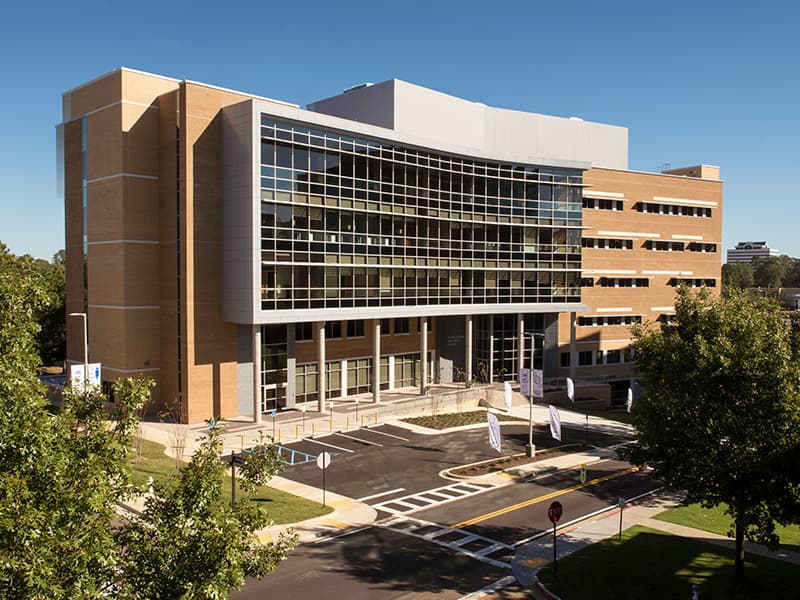
The University of Mississippi Medical Center dedicated the $50 million, 124,852 square-foot Translational Research Center today during a ribbon-cutting ceremony at the new facility.
The building is designed to help researchers translate scientific discoveries into therapeutic interventions that improve the health of individuals and the public, covering a continuum from discovery to recovery.
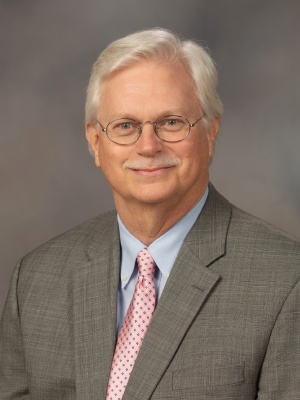
“The opening of this building marks the end of a lot of hard work on the part of many people in the UMMC research mission who have been involved in its planning and design and the shepherding of its actual creation,” said Dr. Richard Summers, associate vice chancellor for research.
“It is our challenge and responsibility as UMMC researchers to fulfill the promise implicit in the foundations of this building,” he said.
The TRC will house the Gertrude C. Ford MIND Research Center, the John D. Bower School of Population Health, the Neuro Institute, the Technology Transfer Office and research support areas. Each entity aligns with the goals of translational research.
Dr. LouAnn Woodward, vice chancellor for health affairs and UMMC’s top executive, defines translational research as “translating scientific discovery into treatments and cures.”
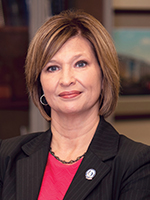
“Effective treatments and cures are what our world desperately needs, and what many of you are so passionate about,” she said. “Today, UMMC research is more powerful than ever, and we’re contributing to this quest in important ways.”
Woodward thanked the project’s sponsors, donors and leaders, especially Senator Thad Cochran, who supported a $19.8 million award from the National Institute of Standards and Technology to help fund the project.
“Senator Cochran has been instrumental in bringing so many projects to Mississippi that have improved our state. This Translational Research Center is one more,” Woodward said.
With its official opening, the building’s tenants include established and new parts of the UMMC research mission.
The research operation of the MIND Center, the Medical Center’s unit devoted to the study and care of neurocognitive dementia, including Alzheimer’s, moved into the Translational Research Center first floor earlier this fall.
“This new space marks an important milestone for us in our mission to accelerate the pace of discovery in our work on Alzheimer’s and related diseases,” said Dr. Tom Mosley, Dudley and Robbie Hughes Distinguished MIND Center Chair and professor of geriatrics.
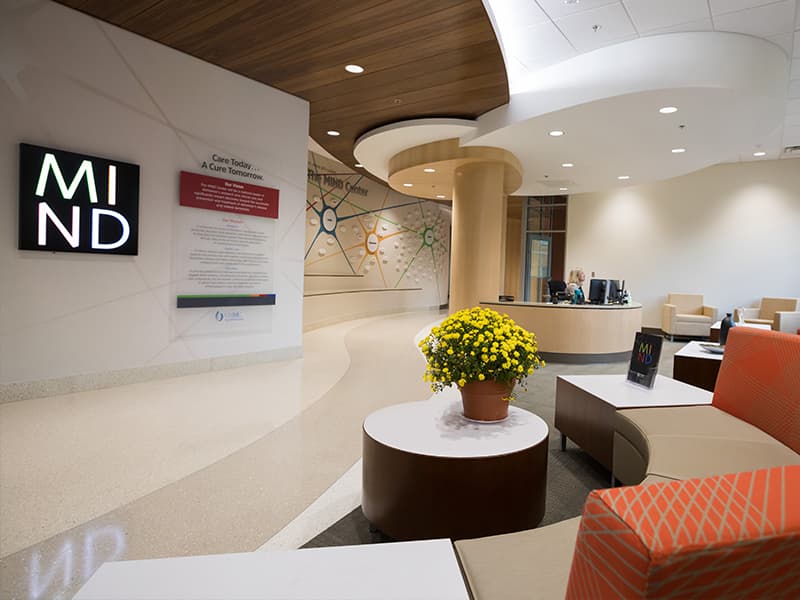
The facility includes clinic space for patients involved in clinical trials and research, as well as offices designed for faculty and administrators to collaborate more easily, Mosley said.
“To take advantage of these advances requires more than a single scientist working in isolation in a single lab,” Mosley said. “The pace and scope of discovery is too vast. It requires teams of collaborators.”
The School of Population Health will move onto the building’s second and fifth floors in 2019.

“Nearly two years ago, the John D. Bower School of Population Health was just an idea, a thoughtful plan developed by a dedicated group of stakeholders. Today, it is a reality,” said Dr. Bettina Beech, founding dean and professor of population health science.
Founded in 2016, the school is the third of its kind in the United States. Its mission is to educate leaders who will transform health care delivery and the health of Mississippians. The school started classes in its Department of Data Science in Fall 2017.
The third floor will house the Technology Transfer Office and business incubator space. The available laboratory and conference space will facilitate research-industry partnerships that can help bring UMMC researchers’ discoveries to the marketplace.
“This building will contain an incubator for building partnerships between UMMC faculty and the biomedical industry, allowing us to capitalize on some of the intellectual property being developed by the very talented group of scientists on our campus,” Summers said.
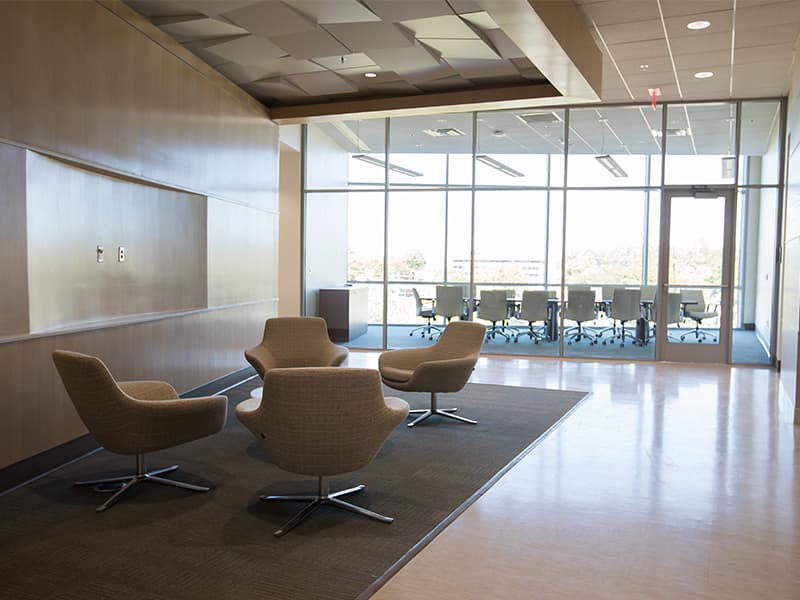
The Neuro Institute takes up the fourth floor. Also founded in 2016, its mission is to integrate the Medical Center’s health care, research and education missions to find treatments for addiction, stroke and neurotrauma.
“The space is designed to spur collaboration and innovation, with open architecture labs where no walls separate researchers and conference rooms for formal and informal gatherings of scientists, physicians and other health professionals,” said Dr. Michael Lehman, chair of the Neuro Institute operating board and professor and chair of neurobiology and anatomical sciences.
Dr. Ford Dye, trustee of the Mississippi Institutions of Higher Learning and alumnus of the School of Medicine, said, “As a practicing physician, I am constantly aware that the miraculous achievements of modern medicine are built on decades of discovery in the biomedical and health sciences.
“This Translational Research Center positions UMMC to contribute to the next wave of innovation that improves human health right here in Mississippi and around the world.”
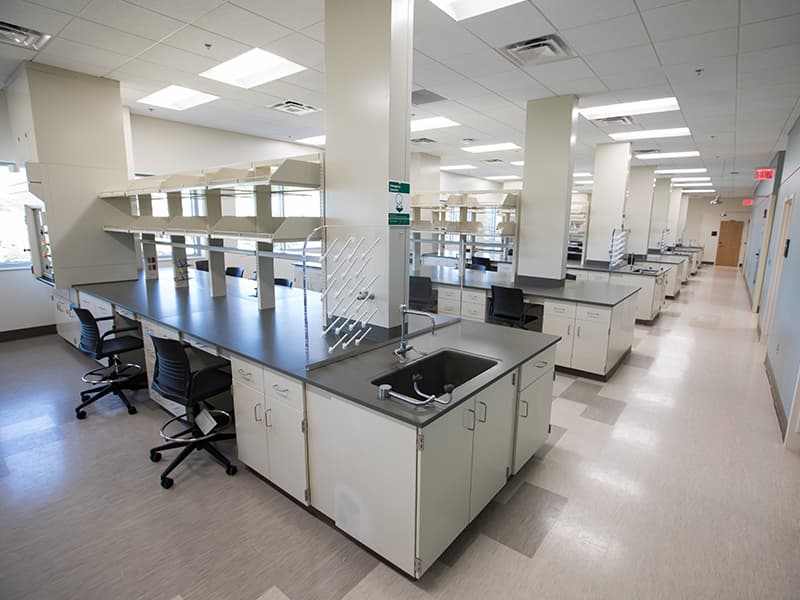
The TRC opens at a time of substantial growth for UMMC. The new School of Medicine opened in August and the Children’s of Mississippi hospital expansion groundbreaking is expected later this year.
“This building – with its labs, exam rooms, meeting spaces and support areas – will be an important new asset for our scientists and clinicians to realize our hopes and dreams,” Woodward said.

